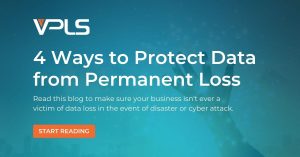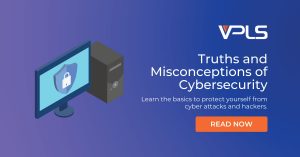
 Afraid that your social media accounts, like Facebook or Instagram, might be held hostage by a hacker? Not to worry! VPLS explains how to protect yourself from cyber attacks and hackers.
Afraid that your social media accounts, like Facebook or Instagram, might be held hostage by a hacker? Not to worry! VPLS explains how to protect yourself from cyber attacks and hackers.
Stealing Your Private Data is Easy
Hackers are trying to steal private data and perform cyber attacks. Don’t expect to find James Bond behind that computer monitor, lurking from an unsuspecting corner of the web.
In general, hackers are individuals that exploit vulnerabilities and take advantage of unsuspecting members of the public. This might be surprising to learn, but a large amount of the public does not have basic knowledge of the internet and computers.
How Do Cyber Attacks Occur?
The most common methods that hackers use to gain access into personal devices and online accounts are through theft, phishing, and malware. Let’s take a closer look at how these processes unfold.
Stolen passwords can be obtained in various ways and can be used to log into websites you most frequent. Hackers can gain access to your email account, such as Outlook or Gmail.
This sneaky tactic is used to steal your password with your active participation! Hackers will lure you into providing your password through fake emails from your bank or other institutions.
Similiar to phishing, hackers can gain access to your password with your help. But, unlike phishing tactics that lead you to an unsuspecting website, hackers will include an email attachment that comes with hidden ransomware.
Worried About Becoming The Next Victim of a Cyber Attack?
 Here are a few guidelines to follow when wanting to safeguard your online accounts and private data:
Here are a few guidelines to follow when wanting to safeguard your online accounts and private data:
As mentioned, hackers exploit vulnerabilities to gain access of account passwords and private data. Regular software updates are one of the most important and simplest ways of protecting yourself from hackers. Nearly all devices that you use on regular basis contain software, such as computers, laptops, mobile phones, tablets, routers, and the list is endless.
Set up automatic download and installation to make the process easier.
STRONG PASSWORDS:
Using the same password for every online account? We’re all guilty of it. Avoid gifting hackers access to all your online accounts by making the passwords harder to crack.
Try using a passphrase instead of a password. For example: My favorite movie is Se7en
See? Passwords don’t have to be hard for you to create!
USE PASSWORD MANAGERS:
Rather than trying to remember every password for every online account you’ve ever created, try using a password manager. These handy tools keep your passwords in one vault and secures them with one master password.
What happens if the master password is stolen or used? It’s happened. Luckily, thanks to various protection methods and encryptions, all passwords were still safe under lock and key. We recommend checking out LastPass or 1Password.
POST WITH CAUTION:
Be careful with what you post on social media sites. Taking pictures of a passport, state ID, or concert ticket and posting them online is enough for some hackers to scrape private information from you, such as an address or date of birth.
Your name, address, and date of birth are enough to open new lines of credit.
Remember the golden rule, “If it sounds too good to be true, it probably is.”
Read More from this Author


